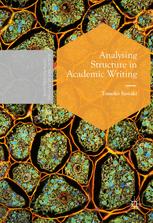

Most ebook files are in PDF format, so you can easily read them using various software such as Foxit Reader or directly on the Google Chrome browser.
Some ebook files are released by publishers in other formats such as .awz, .mobi, .epub, .fb2, etc. You may need to install specific software to read these formats on mobile/PC, such as Calibre.
Please read the tutorial at this link: https://ebookbell.com/faq
We offer FREE conversion to the popular formats you request; however, this may take some time. Therefore, right after payment, please email us, and we will try to provide the service as quickly as possible.
For some exceptional file formats or broken links (if any), please refrain from opening any disputes. Instead, email us first, and we will try to assist within a maximum of 6 hours.
EbookBell Team

4.4
42 reviewsThis book breaks through formalistic traditions to propose a new generic structure analytical framework for academic writing. The integrated approach, taking lessons from cognitive linguistics and structuralism, offers a foundation for establishing research and pedagogy that can promote diversity and inclusion in academia. The simplicity of the flexible structure analytical model proposed by Sawaki enables the user to analyse diverse instances of genre. Further innovation is made in the analysis of generic structure components by integrating George Lakoff and Mark Johnson’s metaphor analysis method, so that the model can account for cultural and ideological patterns that structure our abstract thinking. Using these integrations, the author has established a structure analytical model that can take into account linguistic, cognitive, and pragmatic aspects of genre. Researchers in the fields of linguistics, discourse studies, cultural studies, education, and English for Academic Purposes will be able to use this model to identify whether an atypical instance in academic texts is a result of the writer’s individual failure or a failure to understand diversity in academic writing.